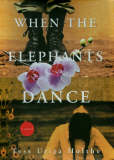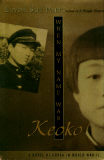|
The AACP Newsletter |
||
| Since 1970 | Asian American Curriculum Project, Inc. - Books for All Ages | April 2003 |
|
Will it Impact Asian Americans? By Leonard Chan Two affirmative action cases were argued before the United States Supreme Court on April 1, 2003. The cases deal with two former white University of Michigan applicants, one an applicant to the university's law school and the other an applicant to the undergraduate school, that claimed they were denied entry to the university on the basis of their ethnicity. The cases have far reaching significance, because it will help define the ways schools are allowed to achieve diversity. At the very least, if the Supreme Court rules in favor of the two former university candidates, it will most likely have a further limiting effect on the methods available to schools that are trying to correct for racial imbalances. Although Asian Americans are often considered to be in numerical balance at many universities, these cases will have a significant impact one way or another on all Asian Americans. We should follow these cases with much interest and wonder about the future effects it will have on us and the wider community.
You can read about the cases and listen to the actual argument made before the Supreme Court at the following links. |
|||||||||||||||||||
Editor's MessageHello everyone. To all the new subscribers thank you for signing up. I'm glad to have met some of you at the events that we attended in March.One item on the event schedule I would like to highlight is ADI's Asian Diversity Career Expo 2003 in San Francisco. For Asian Americans looking for a job, check out this major event. Thank you Jennifer Olayon of Asian Diversity, Inc. for sending the information. For all those that have sent comments, information, and ideas in the past, thank you. Please feel free to continue sending me your feedback. I am considering ways to post your emails on the newsletter web page or in future newsletters. Note that if you do not want your emails posted please let me know and I will follow your instructions. Are you or any one you know interested in summer interning with AACP? We have many interesting projects that we could use your help with. If you don't have time or live too far away, we have projects that you may be able to help us with through the Internet. We are also looking for sponsors or underwriters. If you are interested in learning more, please contact us. AACP is interested in doing a group reading of select book titles for the summer. Please send us your suggestions and ideas. Thank you Emiko Oye for your help with the newsletter.
Leonard Chan Give Us Your FeedbackPlease feel free to send us your reviews, comments, and book suggestions.
You can contact us at - |
Up Coming EventsHere are some events that AACP will soon be attending. Invite us to your events.
By Philip Chin & Leonard Chan Dr. Edward Tsang Lu, born in Springfield Massachusetts, will be aboard the next Soyuz capsule bound for the International Space Station. This is Dr. Lu's third trip to space and the first trip back to space by an American since the Space Shuttle Columbia's destruction in February 2003. Dr. Lu and Russian cosmonaut Yuri Malenchenko will relieve the current three man crew of the space station. The current space station occupants: Commander Ken Bowersox, Flight Engineer Nikolai Budarin, and NASA Space Station Science Officer Don Pettit will return to Earth aboard their own Soyuz spacecraft in May.
Notable Asian American Astronauts include - |
||||||||||||||||||
|
|
|||||||||||||||||||
|
Editorial by Leonard Chan |
|||||||||||||||||||
|
Were filmmaker Michael Moore's and musician Natalie Maines of the Dixie Chicks' recent critical comments about the president and the war uncalled for and or inappropriate? (Read their statements and the negative reactions.) Many other artists both for and against the war in Iraq have voiced their opinions too. Now many average citizens are beginning to use the Internet to voice their criticisms of these "Celebrity Pundits." (Read the anti-Celebrity Pundits' website, petition, and discussion forum.)
The basic points of the petition against Celebrity Pundits are as follows: So are these artists really ignorant? I'm sure some are and some aren't. However, their day jobs do not necessarily make them more ignorant than those that govern us. Many artist and entertainers delve in the realm of public service and politics and are very knowledgeable about current issues. Some like Ronald Reagan have even crossed the line from entertainer to politician. For artists, the act of political expression is not too dissimilar from the functions of their normal occupations. Good artists show us different viewpoints, expand our perceptions, and arouse a variety of thoughts and emotions. Their works often reflect the times and society, and thus provide future historians valuable insights to the past. Artists often include political commentaries in their works. For example, Pablo Picasso, Diego Rivera, Qu Yuan, Ralph Waldo Emerson, William Shakespeare, Charles Dickens, John Lennon, Bob Dylan, and Pete Seeger all have had works that critiqued society and politics.
Is it wrong to criticize the President in times of war? The following renowned American didn't think so. |
Any other attitude in an American citizen is both base and servile. To announce that there must be no criticism of the President, or that we are to stand by the President, right or wrong, is not only unpatriotic and servile, but is morally treasonable to the American public. Nothing but the truth should be spoken about him or any one else. But it is even more important to tell the truth, pleasant or unpleasant, about him than about any one else." "Theodore Roosevelt in the Kansas City Star", May 7, 1918 Does money give some a louder voice than others? Yes money can have this effect, but people, organization, and business from all parts of the political spectrum use their money and power to make their points. Artist and celebrities do not hold a monopoly on the use of their money and power to speak their minds. The megaphones of our government and big corporate media are far louder than any artist or celebrity. In the face of the multitude of opinions and factoids shouted and fed to us, we must learn to be discerning receivers of these messages. Even the ones we trust, respect, and love can be wrong on occasion. At some point in our lives we learned to our shock that our parents weren't perfect. Should we expect the president to be infallible? Franklin Roosevelt was considered to be one of the greatest presidents of the 20th century and yet most of us can agree that he was very wrong about the internment of Japanese Americans during World War II. The few that were critical of FDR's internment policies during World War II must have seemed equally unpatriotic. Today some of those that were considered to be troublemakers in the past are now regarded as heroes. The critics of the President today, may never be proven right or wrong. Nevertheless, as it was in 1941, it remains much easier to go along with the masses than to go against popular sentiments whatever those might be. As Theodore Roosevelt indicated, it is patriotic to speak your mind as long as you believe that what you advocate is the truth. Following leaders and any other person without question is an abrogation of our rights to think freely for ourselves. We must all work hard to become knowledgeable about many things and to think for ourselves. A good working democracy requires and demands that we do. If we should cede our rights to think and speak for ourselves, then that government of the people, by the people, for the people, shall perish from this earth.
|
||||||||||||||||||
The following books are discounted for subscribers to our newsletter. The discounts on these books end April 30, 2003. | |

|
When the Elephants DanceBy Tess Uriza Holthe2002, 368 pages, hardback. A novel set in the waning days of World War II, as the Japanese and the Americans engage in a fierce battle for possession of the Philippine Islands. The Karangalan family and their neighbors huddle for survival in the cellar of a house a few miles from Manila. Crowded together in the cellar, the Karangalans and their friends and neighbors tell magical stories to one another based on Filipino myth and legend to fuel their courage, pass the time, and teach important lessons.
View Additional Information
|

|
When My Name Was KeokoBy Linda Sue Park2002, 199 pages, hardback. With national pride and occasional fear, a brother and sister face the increasingly oppressive occupation of Korea by Japan during World War II, which threatens to suppress Korean culture entirely.
View Additional Information
|

|
Mommy Far, Mommy Near
By Carol Antoinette Peacock |

|
Goldfish and ChrysanthemumsBy Andrea ChengIllustrated by Michelle Chang 2003, 29 pages, hardback. A Chinese American girl puts her goldfish into a fish pond that she creates and borders with chrysanthemums in order to remind her grandmother of the fish pond she had back in China.
View Additional Information
|

|
Butterflies for KiriBy Cathryn Falwell2003, 28 pages, hardback. Kiri, A Japanese American girl who loves to draw and print, tries to use the origami set she received for her birthday. Includes instructions for making a origami butterfly.
View Additional Information
|
Copyright © 2003 by Asian American Curriculum Project, Inc. (a non-profit organization since 1970)
Visit our website at AsianAmericanBooks.com
To unsubscribe simply reply to this email and type "REMOVE" in the subject line.